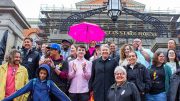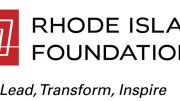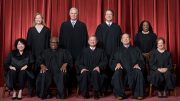Local, national groups condemn Pres. Trump, white supremacists for it; Boston sends strong message to bigots after Charlottesville
By: Jenna Spinelle/TRT Reporter—
Last month, Charlottesville, Virginia became a visible metaphor for growing social and political tensions in the nation around race and freedom of speech.
A violent clash between white supremacists and counter protesters in Charlottesville on August 12 lead to one death and 19 injuries after a neo-Nazi protester drove his car through a crowded street.
In the weeks since the tragedy, President Trump repeatedly refused to openly condemn white nationalist groups for their actions while providing ambiguous statements on the tragedy. Many Republican politicians and business leaders appeared to distance themselves from these groups.
Organizations and activists from across the political spectrum have reprimanded the President for his actions and encouraged people across the U.S. to speak out against hate at a time when it appears to be front and center in the national dialogue.
How We Got Here
The August 12 “Unite the Right” demonstration in Charlottesville had been in the works for weeks and centered around plans to remove a statue of Confederate General Robert E. Lee from a city park. The Charlottesville City Council voted in February to remove the statue and change the park’s name from Robert E. Lee Park to Emancipation Park.
That decision angered the pro-white movement, who feel strong ties to the south’s history as a Confederacy during the Civil War. Charlottesville resident and pro-white activist Jason Kessler organized the “Unite the Right” rally to draw attention to the statue and prevent it from being removed. The event quickly drew support from the Ku Klux Klan and other white supremacists groups.
Counter protesters from the anti-fascist—or “antifa”—movement clashed with the pro-white ralliers on August 12 and at a pre-rally party on the University of Virginia campus on August 11. Protesters on both sides say they planned to act peacefully, but the event quickly turned violent as the groups clashed in the streets.
The rally in Emancipation Park was scheduled to begin at noon that day, but was shut down by police before the first speaker could take the stage as tensions escalated. Protesters then moved to McIntire Park, which is north of the city’s downtown. All activities came to a halt when Virginia Governor Terry McAuliffe declared a state of emergency.
Members of the LGBTQ community in Charlottesville were among the counter protesters at the rally. Activist Emily Gorcenski told the Guardian she had received more than 100 death threats in the weeks leading up to the rally and was carrying a gun that day to protect herself.
“The Second Amendment is one of the few civil rights I have left as a trans woman,” Gorcenski told the Guardian.
The events came to a head when 20-year-old James Alex Fields, Jr., drove his car through a crowded street, injuring 19 people and killing 32-year-old Heather Heyer. Two Virginia State Patrol officers, Lt. H. Jay Cullen and Trooper Berke M.M. Bates also died Aug. 12 when their helicopter crashed while assisting with public safety efforts at the rally.
Fields is charged with second-degree murder, three counts of malicious wounding, and failure to stop in an accident that resulted in death.
On the Ground
Shayla Givens, sister of The Rainbow Times Assistant Editor Mike Givens, lives in Charlottesville and spent much of that day glued to the news and social media to keep track of what was happening just miles from her home. She felt it was too dangerous to attend the rally in person, but did venture out to pick up her boyfriend and, in doing so, came face-to-face with some of the white supremacists.
“As I slowly drove down McIntire Road to drop him back off at home, I passed a sea of primarily white men waving flags of hate,” Givens said. “My boyfriend, who is white, and I made a show of our interracial relationship and managed to disgust and horrify at least one older man who stopped to gawk at us while holding a Confederate flag.”
Givens has lived in Charlottesville since 2006 and works near Emancipation Park. She described the feeling of going to work the Monday following the rally as somber and uneasy.
“Most of the clients I talked to just needed to vent and express their fears and frustrations,” Givens said. “I remember ending those conversation with the words ‘be careful’ and worrying for their safety when they stepped outside of the shelter.”
Givens accompanied one of her colleagues to Emancipation Park to post a sign urging that the park be renamed “Heyer Memorial Park” in front of the Lee statue. She said this resulted in applause from those gathered at the statue.
“I had been worried for her safety, which is why I accompanied her, but I could tell we were in good company at that point,” Givens said.
Local and National Reaction
In the days following the rally, groups across the country denounced the violence and condemned the pro-white movement for spurring it on. President Trump, however, refused to make such statements and said “many sides” share blame for what happened at the Unite the Right rally, but eventually called out white nationalists in his comments after coming under heavy public scrutiny.
Those statements drew even further criticism from organizations locally and nationally that seek to promote equality and protect the rights of all Americans.
Boston-based GLBTQ Legal Advocates & Defenders (GLAD) issued a statement accusing the President of validating those who seek to spread a message of hate against anyone who does not support their values.
“In doubling down on his attempt to blame ‘many sides’ for the hate-motivated violence, the President has given his stamp of approval to those who incited it,” the organization said in a statement. “But his words do represent—and embolden—a small but dangerous faction in American society that persists to this day. In doing so he has made explicit what we have known all along: that his presidency is tainted, and his administration is infested, by white supremacist sympathies.”
Those comments were echoed by leaders on a national scale.
“No, Mr. Trump, there are not ‘many sides’ to this. There is white supremacy, and there is America. There is good, and there is evil. It’s not a hard choice,” Southern Poverty Law Center President Richard Cohen said in a statement. “If the situation weren’t so serious, we could overlook his act, his ducking and weaving, his petulant behavior. But at this point, it’s simply bizarre and disheartening.”
The events in Charlottesville are a culmination of increasing violence against people of color, LGBTQ people, and other marginalized groups across the country. On August 22, Kiwi Herring became the 18th transgender person killed in this country thus far in 2017. By the end of August in 2016, there had already been 19 deaths of transgender people in the United States.
As of August 24, the Southern Poverty Law Center has a published a rolling blog highlighting hate crimes and anti-LGBTQ behavior on behalf of people and organizations across the country. SPLC also keeps an active “Extremist Files” section on its website that denotes myriad groups and individuals across the country who the Center has designated as hate groups. The President has also come under fire for a number of decisions that many have viewed as attacks on marginalized groups. In late August, the President signed off on a memo effectively banning transgender people from serving in the military. Also in late August, Trump issued a pardon to former Arizona Sheriff Joe Arpaio, who was imprisoned for defying a court order striking down racial profiling practices in the state. At 85 years old, Arpaio’s career ended when he lost his reelection bid last year and was subsequently jailed for his contempt of court. Arpaio faced a litany of allegations throughout his career, from abuse of power to misuse of funds, to civil rights violations.
Boston Counter Protest
One week after the tragic events in Charlottesville, a “Free Speech Rally” was organized by conservative activists to take place on the Boston Common in the heart of Massachusetts’ state capitol.
Roughly 40,000 counter protesters dwarfed the small number of ralliers at the Boston Common in a highly-publicized march from Roxbury to downtown Boston. The two-mile long contingent arrived at the Boston Common in force and their presence was so overwhelming, ralliers with the “Free Speech” contingent left the venue after only a few hours.
More than 30 people were arrested, most of whom were counter protesters, on a range of charges, from disorderly conduct to disturbing a public assembly. The counter protest received praise from progressive activists and was covered by local and national media outlets.
Moving forward
A vigil was held on August 16 in Charlottesville to bring a sense of unity to a community torn apart by hate. The vigil brought hundreds of people holding candles to trace the same path the “Unite the Right” activists walked with tiki torches less than a week before.
A memorial service for Heyer drew more than 1,000 people to Charlottesville’s Paramount Theatre. The services included remarks from McAuliffe and Virginia democratic senator and former candidate for vice president Tim Kaine.
“Although Heather was a caring, compassionate, person, so are a lot of you. A lot of you go that extra mile,” Heyer’s mother, Susan Bro, said to those at the memorial service, according to ABC News. “And I think the reason that what happened to Heather has struck a chord is because we know that what she did was achievable.”
Givens said the events at Emancipation Park were an eye opener to some city residents about the injustice that African-Americans face on a daily basis.
“Some people got their privilege bubbles burst over the weekend and experienced a taste of what I’ve dealt with my entire life. Maybe now some will understand,” she said. “But the Charlottesville community is incredibly resilient, and I am proud to call it my home. There are more events of love, healing, togetherness, and hope popping up all over town.”






